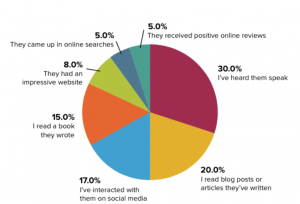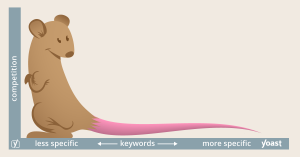
Any seasoned SEO may attest to the fact that job of an SEO is part skill, and part playing guesswork with search engine algorithms. While the highly guarded secret formula to how items are ranked in search results are protected by search engine companies such as Google, constant research and staying up-to-date with the changing trends can however, help SEOs in getting the desired results they seek.
2015 Search Engine Ranking Factors by Moz, presents data from over 150 SEO professionals and future insights into the search engine-marketing world. The report also includes a correlation study conducted by the data science team at Moz that identifies factors that lead to high page rankings. While this survey provides very valuable insights on various SEO factors, it is cannot conclusively tell you the “secret sauce” to what search engines use to rank websites. To make this evident, Moz cautions, “note that these factors are not “proof” of what search engines use to rank websites, but simply show the characteristics of web pages that tend to rank higher.”
So let’s dive in, what the search engine ranking factors for 2015 according to the Moz study?
Let’s start with the data analysis that was conducted on 17,600 keyword search results from Google to discover common themes that can be found in high search engine rankings. Again, since this is a correlation study, these findings should not be considered as the causation factors of high-ranking results. Correlation factors as stated in this study do provide highly valuable ranking factors that may improve your SEO strategy.
Key Discoveries from the Correlation Study:
- The study showed lower correlations between on-page keyword usage and ranking in search results. Moz identifies the possible cause as a result of Google becoming much smarter in identifying users intent and close variations of words.
- Page length, international targeting and total number of links all showed moderate association with higher Google rankings.
- Using HTTPS was found to have a very low correlation to higher rankings in Google.
- The study also found that, server response times and the length of URLs did not have a high correlation to a higher ranking in Google.
- Inbound linking is still king. The number of inbound links to a page still has high correlation to Google rankings. This includes various page-level link-based features such as page authority, the number of unique IPs linking to the url, the number of root domains within any pages linking to the URL, among others.
- The study also showed that having the same root or subdomain to a keyword had a correlation to a higher ranking in Google. Moz however cautions that this maybe as a result of the overall use of the keyword instead of an algorithmic bias just because of the domain name. Meaning, getting a domain name that has your desired keyword alone may not get you the search result rankings that you desire
- The research showed that there was a low correlation between the type of top-level domain (.com, org, net, etc) and the rankings in Google. This may come as a huge relief to individuals looking to purchase new domain names but find the .com versions already taken.
- The use of anchor texts also play a major role in search results according to this new finding.
- Interestingly, the number of social shares on a page showed a positive correlation with rankings. Moz attributes the possible cause to the SEO benefits gained through social sharing rather than an algorithm that favors social shares.
Future Predictions from SEO Professionals:
The Search Engine Ranking Factors in 2015 report also presented data from over 150 SEO professionals to help provide insights on trends over the next 12 months. Below are some of the key areas that were predicted to have an impact in search engine rankings in the future:
- Mobile Friendliness is predicted to impact search engine rankings
- Analysis of a website or page’s perceived value
- The quality and quantity of instant answers provided in Search Result Pages (SERPs)
- Usage data including, Click Through Rates (CTR), and time spent on pages
- Readability, usability and design were also indicated as impacting factors in the near future
- Structured data was also thought to influence result factors in the future
- Association with mobile app popularity is predicted to have a possible impact on search results according to the survey participants.
- Clickstream data from outside search results. Clickstream data comes from analyzing data on what pages visitors visit and in what order.
- Site speed was also indicated as possible factor in search engine rankings in the future.
- Even though HTTPS is perceived by the SEO professionals surveyed to have an impact on search results in the future, the correlation study did not show a high correlation with search rankings. Let’s observe what happens over the year.
View full 2015 Search Rankings Factors here
(205)







